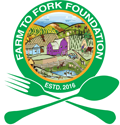Farmers’ knowledge and perceptions of viral diseases of hot pepper (Capsicum sp.) and their management in Rwanda
DOI:
https://doi.org/10.5455/faa.113641Keywords:
Capsicum spp., constraints, virus diseases, farmers’ perception, pest managementAbstract
Hot pepper (Capsicum spp.) is an important cash crop in Rwanda how- ever, its productivity can only increase after addressing factors that limit its production. This study aimed at revealing the farmers’ knowledge and perceptions of virus diseases and their management in Rwanda. A survey was conducted between February and March 2018 in the main hot pepper growing areas covering low, mid and high-altitude agro-ecological zones (AEZs). Household data were collected using a structured questionnaire from 101 respondents and analysed using descriptive statistics. Majority of farmers (86.1%) indicated that pests and diseases were the main constraints to hot pepper production. Viral diseases were perceived by 71.9% of the farmers as the most serious diseases while 51.4% and 12.9% of them reported that aphids and whiteflies were the major insect pests of hot pepper, respectively. Only 17.8% and 25.7% of the farmers attributed the cause of the viral diseases to insect vectors and the use of infected seeds, respectively. The main method used to control viral diseases was application of synthetic pesticides. About two-thirds of the farmers lacked in knowledge of viral disease symptoms, spread and management across all AEZs. Majority of the farmers (80.2%) did not have access to extension service or training but relied mainly on farmer-interactions for information. Farmers awareness of viral diseases was significantly influenced by training (χ2 = 29.205; P = <0.001) and age (χ2 = 10.421; P = 0.005). Therefore, interventions such as farm-level training to raise the farmers’ awareness of diseases, especially viral diseases and integrated disease management are needed. This study provides baseline information for the development of sustainable integrated pest management (IPM) strategy for hot pepper viral diseases in Rwanda.
Downloads
Downloads
Published
How to Cite
Issue
Section
License
Copyright (c) 2020 by the author(s). This work is licensed under a Creative Commons.

This work is licensed under a Creative Commons Attribution-NonCommercial 4.0 International License.




















